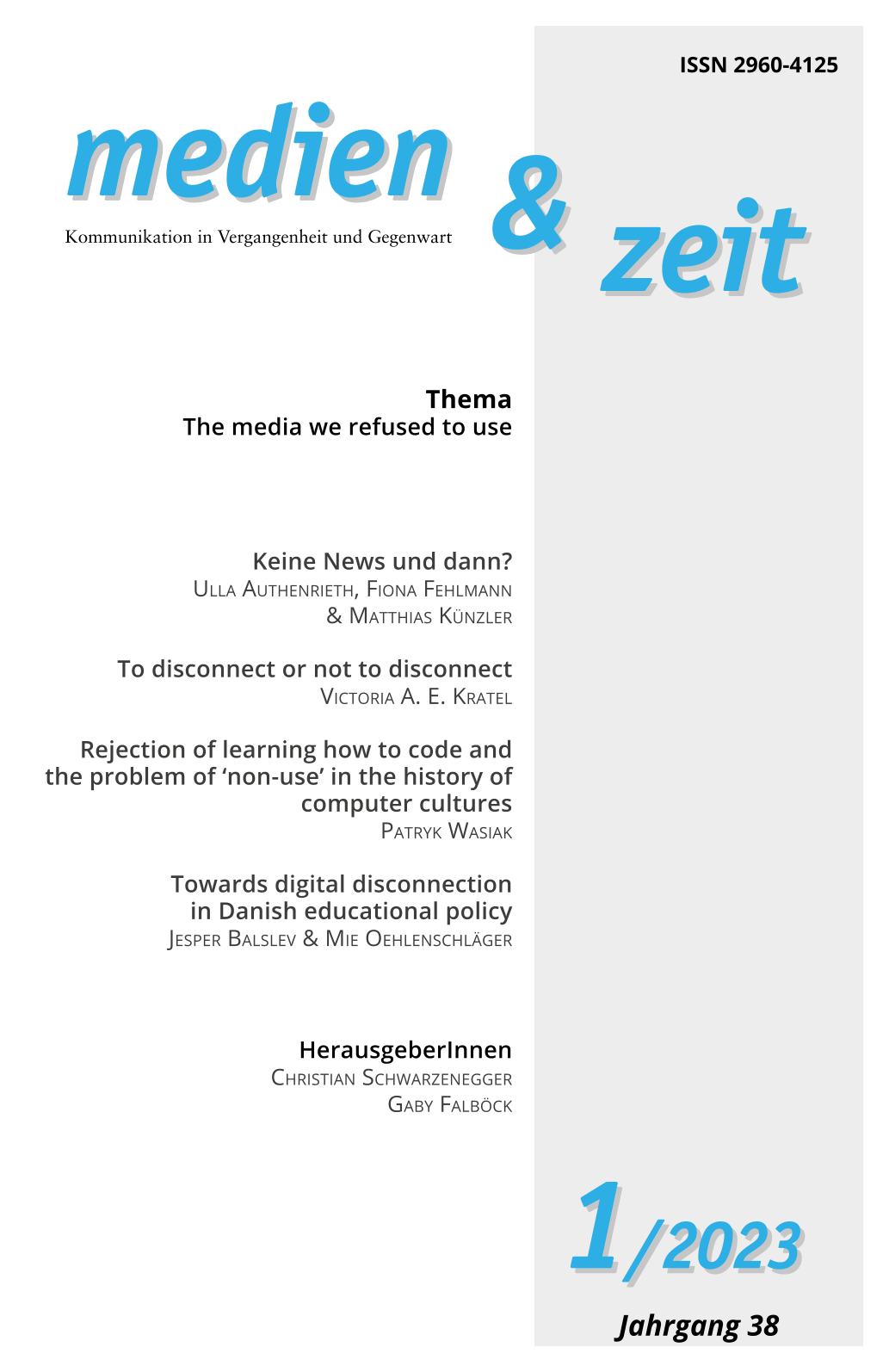Keine News und dann?
Junge Erwachsene zwischen News Deprivation und Informationsorientierung
Keywords:
Nachrichtennutzung, Informationsorientierung, junge Zielgruppen, News-Avoidance, News-Deprivation, Mediennutzung, Media-Use-LabAbstract
As numerous studies on young people's use of journalistic news show, the way in which they access such content has changed considerably in the environment of digital platforms. Often, corresponding studies focus primarily on describing these changes through the use of classic news formats. However, it remains unclear which content and information young users regard as news in their everyday practices, how they deal with such content, and what expectations they have regarding news. The present study addresses this research desideratum. Using qualitatively collected data, the study examines which practices, actions and associated meaning references are important for young people in their dealings with news. To this end, forty young adults between the ages of 19 and 32 were observed and interviewed as part of a media-use lab. The results show that although legacy media tend to play a subordinate role in the actual media use of the young people interviewed, they nevertheless consider news to be fundamentally important and can give very precise reasons for their non-use of news. At the same time, they are interested in and concerned with topics that have a connection to their life. Young media users therefore seem to be "news deprived," but information-oriented.
[abstract translated by editor]
Downloads
Published
How to Cite
License
Public access to articles in the journal medien & zeit is free of charge, at no charge to authors, and is available to all readers under the Creative Commons Attribution-NonCommercial-NoDerivatives 4.0 license. The rights for the contributions belong to the respective authors (no apc).



